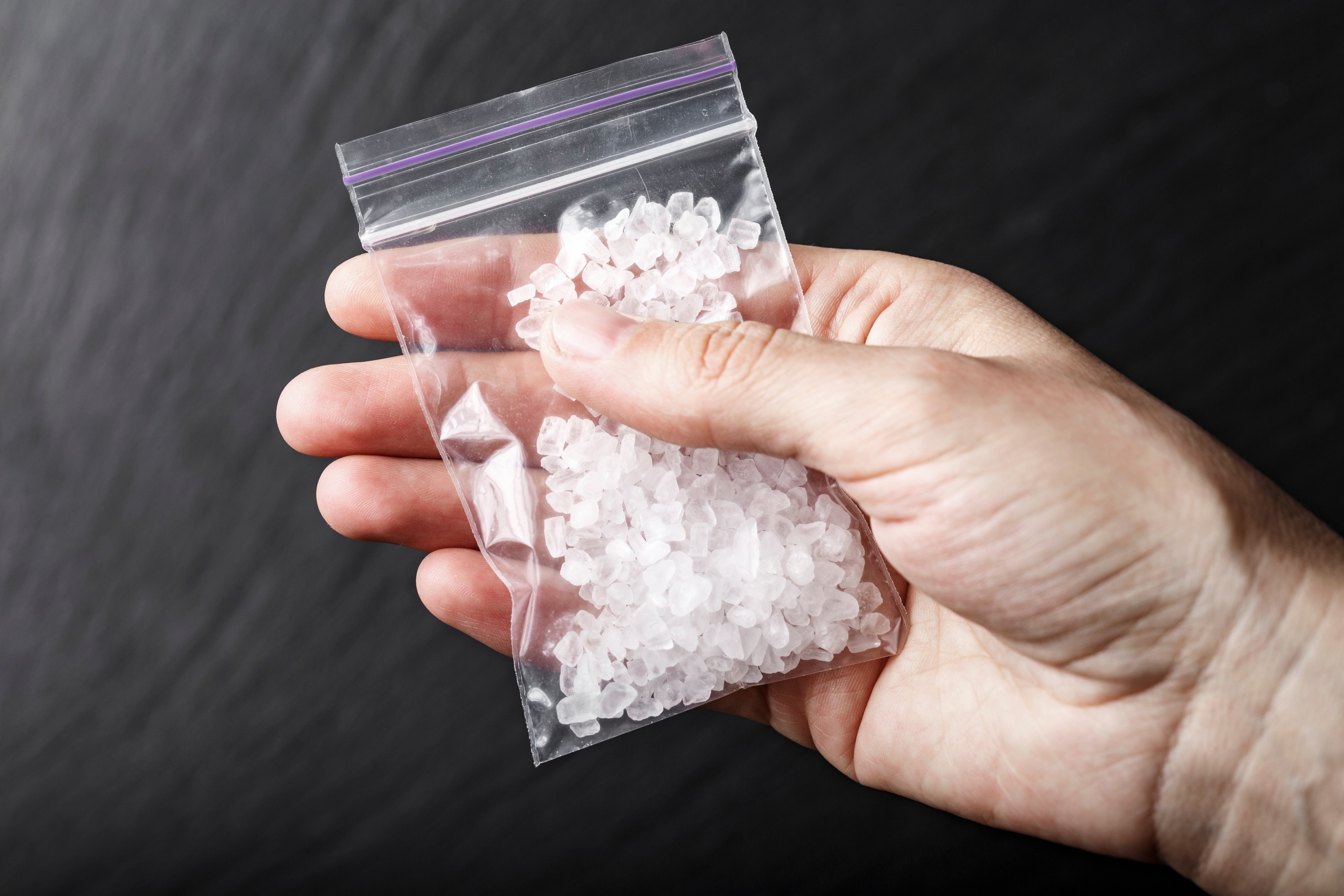Methamphetamine is one of the most addictive and destructive drugs out there. This powerful stimulant hooks users quickly and can have devastating effects on the mind and body. But how long does meth stay in your system? Let’s take a closer look at how this sinister substance sticks around.
Why Meth is Addictive

Meth is considered one of the most addictive illicit drugs due to its potent effects on the brain and body. When meth enters the system, it triggers a sudden flood of dopamine, creating an intense rush of pleasure and energy.
Over time, meth destroys dopamine receptors, making the user dependent on the drug just to feel normal. Meth also impacts other chemicals like serotonin and norepinephrine, amplifying mood and alertness.
However, as tolerance builds, it takes more meth to achieve the same high. This leads to compulsive use and addiction as the user chases the initial euphoric effects but requires ever-larger amounts. Meth powerfully hooks users both physically and psychologically.
Meth in Blood
Meth has a relatively short half-life compared to many other drugs. This means it starts breaking down and filtering out of the bloodstream faster. Here’s a quick overview of meth detection times in the blood:
- Meth can be detected in the blood within 1-2 days of last use.
- Blood tests can detect meth for around 2-4 days after the most recent dose.
- Chronic heavy meth users can test positive around 7-10 days after last use.
- Methamphetamine is generally undetectable in blood tests after 10 days.
The length of time meth remains detectable depends on several factors, like the frequency of meth use, dosage amounts, individual metabolism, and more. But meth blood tests remain the quickest way to detect recent intoxication or rule out very recent use.
How Long Meth Stays in Urine
- Casual meth use can be detected in urine for 3-5 days.
- Regular use can be detected for around 5-7 days.
- Chronic heavy meth use can produce positive urine tests for 7-10 days.
- In rare cases, urine tests can detect meth for up to 2 weeks or longer.
Meth Addiction Symptoms
- Strong meth cravings
- Increased meth tolerance
- Meth withdrawal when stopping
- Using more meth more frequently
- Failed attempts to quit or cut back
- Spending excessive time/money on meth
- Using meth despite negative consequences
- Neglecting work, school, and family for meth
- Continued use despite health issues
How to Help Someone With Meth Addiction
- Educate yourself on meth addiction – understand the signs, effects, treatments, etc. This allows you to make informed choices when helping your loved one.
- Have an honest, caring conversation about your concerns and desire to help – avoid angry confrontation.
- Suggest professional treatment – inpatient rehab, counseling, 12-step programs, etc.
- Provide emotional support and encouragement for recovery.
- Set healthy boundaries if the addict refuses help – don’t enable their continued drug use.
- Take care of your own physical and mental health during this difficult time.
- Consider joining a support group for families impacted by addiction.
- With compassion, patience, and professional help, even the most dedicated meth addict can achieve lasting sobriety.
Should You Go to Meth Rehabilitation Centers?

- Specialized Treatment. Professional treatments for meth addiction offer specialized programs that address the physical, psychological, and emotional effects of addiction. These programs are designed to provide you with the best chance of recovery.
- Medical Supervision. At meth treatment centers in Los Angeles, you’ll have access to 24/7 medical monitoring during your detoxification process. This ensures your safety and well-being as you go through withdrawal from methamphetamine.
- Therapeutic Support. Professional meth rehabs offer various therapeutic interventions. Some examples are individual counseling, group therapy, and behavioral therapies. With this meth addiction help in Los Angeles, you can achieve and sustain sobriety long-term.
- Structured Environment. By entering a professional meth rehab, you will be in a structured environment free from triggers and temptation. This controlled setting allows you to focus on your recovery without distractions from the outside world.
- Peer Support. Los Angeles meth recovery is easier with the moral support of fellow clients and staff inside a detox facility. This peer support is essential to the recovery process to help you feel less alone and more motivated to stay sober.
- Aftercare Planning. Professional meth rehabs provide aftercare planning to help you transition back to your everyday life after completing the program. This may include ongoing therapy, support groups, and resources to prevent relapse and maintain your sobriety in the long run.
Effects of Meth Addiction
- Extreme weight loss and malnutrition
- Dental problems like tooth loss and decay
- Skin sores, lesions, and infections
- Heart damage, high blood pressure, stroke
- Liver and kidney damage
- Seizures
- Impaired motor coordination
- Depression, anxiety, aggression
- Mood disturbances, personality changes
- Hallucinations, paranoia, delusions
- Memory loss, cognitive decline
- Insomnia and sleep disturbances
The Breaking Bad Breakdown: Treating Meth Addiction
- Medical detox – Medications reduce meth withdrawal symptoms and drug cravings. They do this in a safe, controlled setting.
- Inpatient rehab center – This 24/7 structured care includes counseling, group sessions, and relapse prevention.
- Outpatient treatment – Less intensive personalized therapy that happens up to 5 times a week for several months.
- 12-step programs – These help members achieve and maintain abstinence through group sharing and sponsor mentorship.
- Behavioral therapies – Cognitive behavioral therapy, contingency management, and motivational incentives teach coping skills. They also promote healing.
- Medications – Drugs like antidepressants and antipsychotics may are to manage psychiatric symptoms associated with meth addiction.
- Dual diagnosis treatment – Underlying mental health issues like depression or PTSD are addressed simultaneously – depending on severity.
Healing Meth Addiction
Meth addiction may feel like a death sentence, but countless addicts have broken free and transformed their lives through dedicated recovery efforts. With the right treatment plan and support system, you, too, can experience the hope, joy, and fulfillment of sobriety. Don’t wait – seek help today and regain control of meth’s deadly grip. Your best life is still ahead.
The LA Oasis: Why Choose LA Wellness Home?
- Accredited and Certified – Our meth rehab programs meet the highest standards in the addiction treatment field.
- Personalized Care – Custom treatment plans are crafted to suit each client’s unique needs and recovery goals.
- Dedicated Staff – Our caring team of addiction specialists provides 24/7 medical supervision, support, and guidance.
- Peaceful Setting – Our comfortable, structured rehab facility fosters healing of the mind, body, and spirit.
- Family Involvement – Loved ones participate in therapy to rebuild trust and establish a support system.
- Aftercare Planning – We assist alumni in transitioning back into normal life and maintaining sobriety after treatment.
- Latest Treatment Methods – We stay up-to-date on the most effective evidence-based therapies for meth addiction.
- Flexible Payment – We work with all insurance plans and financing options to make rehab affordable.




